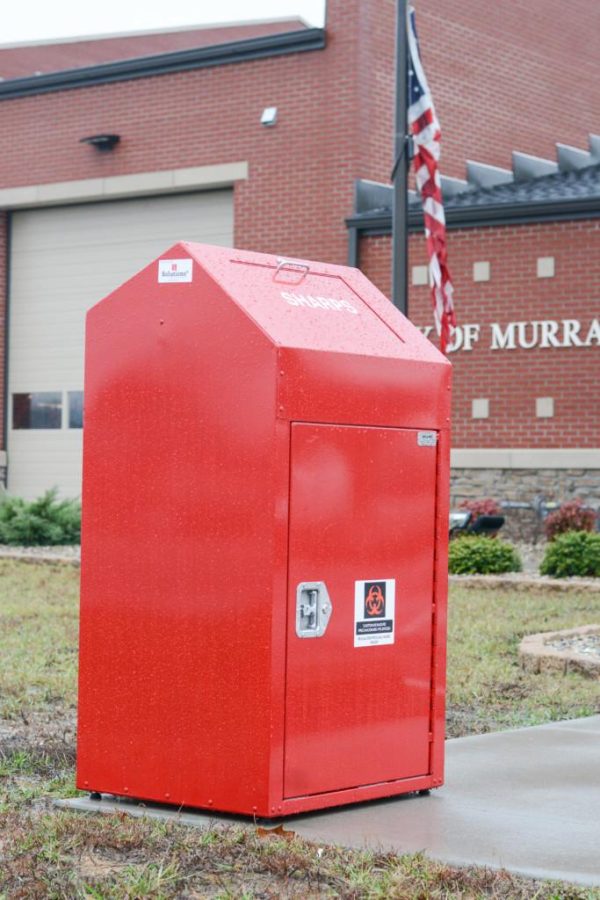Story by Michelle Hawks, Contributing writer
As part of an internship with the Murray-Calloway County Hospital, 2016 Murray State graduate Lindsey Robertson worked to provide a safe area for needle disposal by creating a project called Think Sharp.
She said the idea came to her after sitting through multiple meetings about topics considered an issue within the hospital.
“It’s something that always gets talked about, but it was never a big enough issue,” Robertson said.
Robertson, former public and community health major, said she was excited about providing this service to the community.
As of Dec. 26, there are two locations where people can dispose their used needles: outside of the emergency room at Murray-Calloway County Hospital and Fire Station Number 3, located at 2075 US Highway 641 North.
Robertson said there are no cameras on the boxes and no questions will be asked about what is disposed.
“We want people to feel comfortable disposing of their sharps,” Robertson said.
She said any type of needle is acceptable, and though there is no technical law against simply throwing them away, it exposes trash haulers to unnecessary needle hazards and can give access to drug users looking for a needle.
“It’s a big issue, especially as the drug issue in this area continues to expand,” Robertson said.
She said the contents of the boxes cannot be accessed once they are dropped in, stopping drug users from easily finding used needles.
Robertson said she could not have done the project without Keith Travis and Nicole Hudson, who both work at the hospital.
“I want to say a special thank you to both of them,” Robertson said.
She also said SWI, the disposal company for the hospital, also deserves credit for making the project possible.
“We called them and told them what was going on, and they immediately had all kinds of ideas,” Robertson said.
Since her internship has ended, she said the project has been taken over by the Murray Calloway Endowment for Healthcare, but she hopes to still be involved and watch it grow.
“I’m so lucky to get to work at the hospital still,” Robertson said. “If I had taken a job anywhere else, I don’t think I could still be as involved with the project.”




























































































